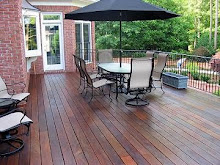Rules Of Forest Preservation for Brazil and other lumber producing countries are designed to preserve their natural resources and the environment. CITES (the Convention on International Trade in Endangered Species of Wild Fauna and Flora) is an international agreement between governments. Its aim is to ensure that international trade in specimens of wild animals and plants does not threaten their survival. This is a vitally respected agreement boasting 173 member nations at this time. It was drafted in 1973 and provides the framework to be respected by each Party (member country), which has to adopt its own domestic legislation to ensure that CITES is implemented at the national level. The Brazilian government has had these laws in place for decades to ensure the regeneration of lumber that is harvested there from their forests. This CITES Treaty is the agreement protecting our flora and fauna worldwide and NOT any other private entity claiming to do so . . . at a profit.
The Forestry Stewardship Council (FSC) organizes loggers, mills, shippers and distributors to certify that certain lumber is harvested responsibly. This is a self-regulated organization without a specific fee structure. FSC certified shipments of lumber are sold at a premium to recover the cost of certification.
Tree Harvest Certifications (issued by Ibama � the Federal authority) must accompany ALL timber and lumber from standing timber in Brazil all the way to the importer's warehouse in the United States. This includes origin and species certifications as well as fumigation, density and grade specifications. To acquire these certifications, the loggers and mills must first present certifications provided by the Brazilian government which allow them to harvest particular trees. These harvest certifications must be carried by the loggers and the tree transport truckers at all times. Being caught without them will cause their logs and trucks to be confiscated and they will be jailed as poachers.
Rain Forest Preservation - The largest cause of loss of forest lands in the Rain Forest Basin is burning to create farmland and pasture land. To maintain the Rain Forests for future generations it is important to bring value to the standing forest. The responsible use of the select cut techniques (required in Brazil today) on a broad range of species will help preserve the Amazon for future generations by allowing local people to make a living in the rain forest rather than destroying it for the raising of cattle and soybeans. People do not destroy that which sustains them. By introducing the use of more species for a purpose, the use of these trees is spread over a variety of species. This prevents the over use of any one species. Brazilian Wood Depot offers a wider variety of species for decking than any distributor in the United States. The availability of more choices spreads demand among those choices.
Few people grasp the immense size of the Amazon rain forest. It is roughly the size of the continental United States. Today about 15% of the total Amazon rain forest is deforested. When Europeans arrived in South America, about 15 % of the rain forest was deforested.
In 1990, a number of tropical forestry experts met to discuss the causes of tropical deforestation and what could be done to slow deforestation. They arrived at a number of conclusions, some of which are summarized below (Smithsonian Institution/International Hardwood Products Association, 1990):
• Tropical rain forests will be preserved only if they are accorded economic value.
• Blanket bans and embargoes on tropical hardwood will tend to depress the value of these hardwoods and the forests that contain them. Such constraints generally diminish the economic incentives to conserve and manage these forests in the face of alternative land uses that lead to their destruction.
• In areas where prices received for timber do not fully cover the cost of forest management; there is a lack of incentive and commitment to forest management.
• Funds obtained from products of the tropical forests must be re-channeled into managing and regenerating those forests.
• The international tropical timber industry should encourage the continued establishment of conservation areas solely dedicated to forest preservation
Many of these ideals are addressed in the CITES Treaty mentioned earlier in this article. The destruction of tropical rain forests is due to growing population, growing infrastructure, and the economic activities associated with certain occupations. Unless people who work in cattle ranching, farming, charcoal production, and gold or oil exploration can find an alternative source of income that preserves that income's resources, their income will drop due to loss of resources and their country's subsequent economic development will suffer.
More information and links to great articles referenced at RealWood.Org.
Green logging and milling principles recognized at RealWoodDepot.com.
Courtesy Brazilian Wood Depot


No comments:
Post a Comment